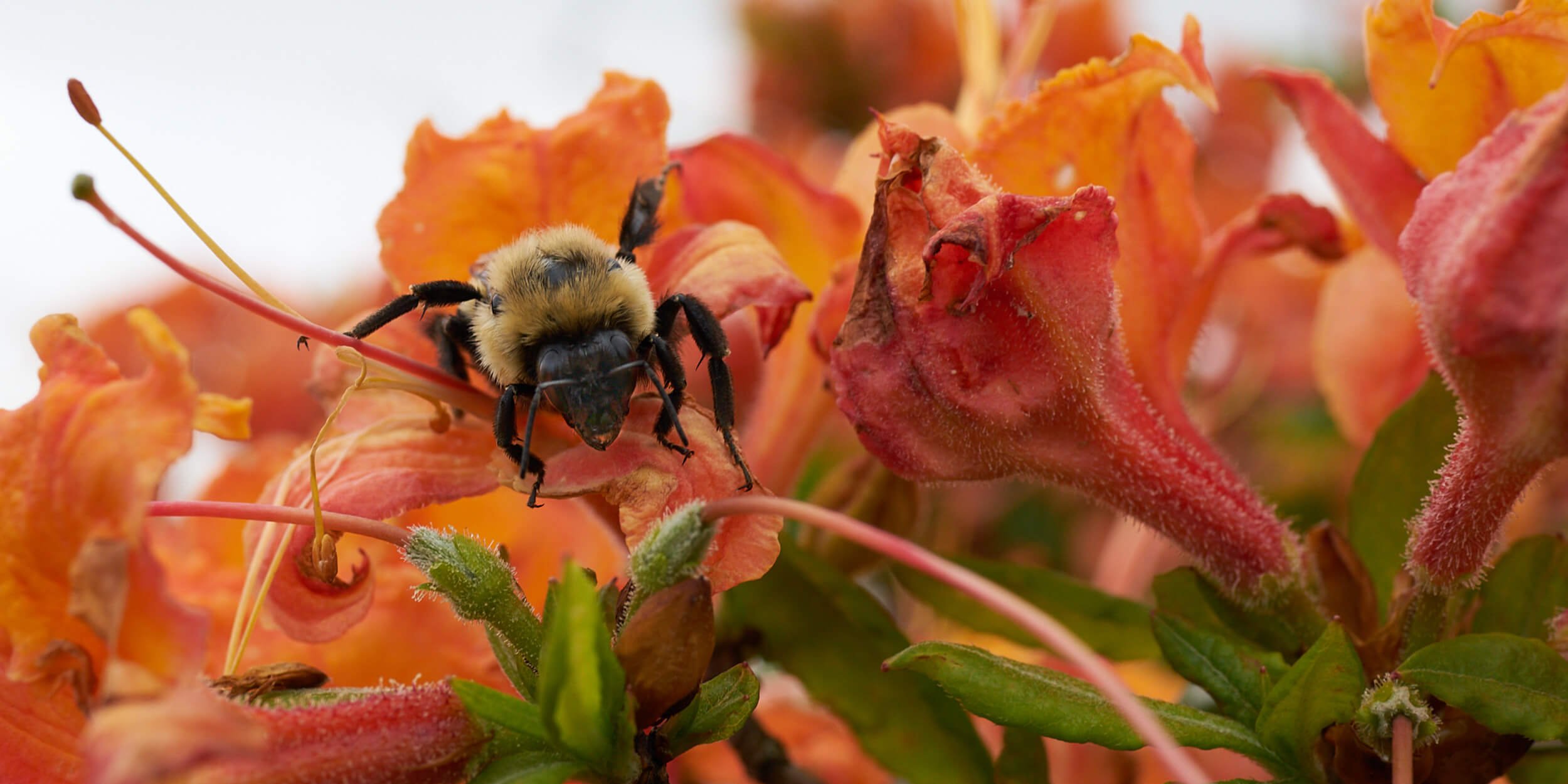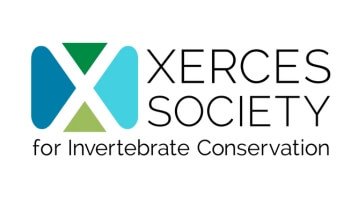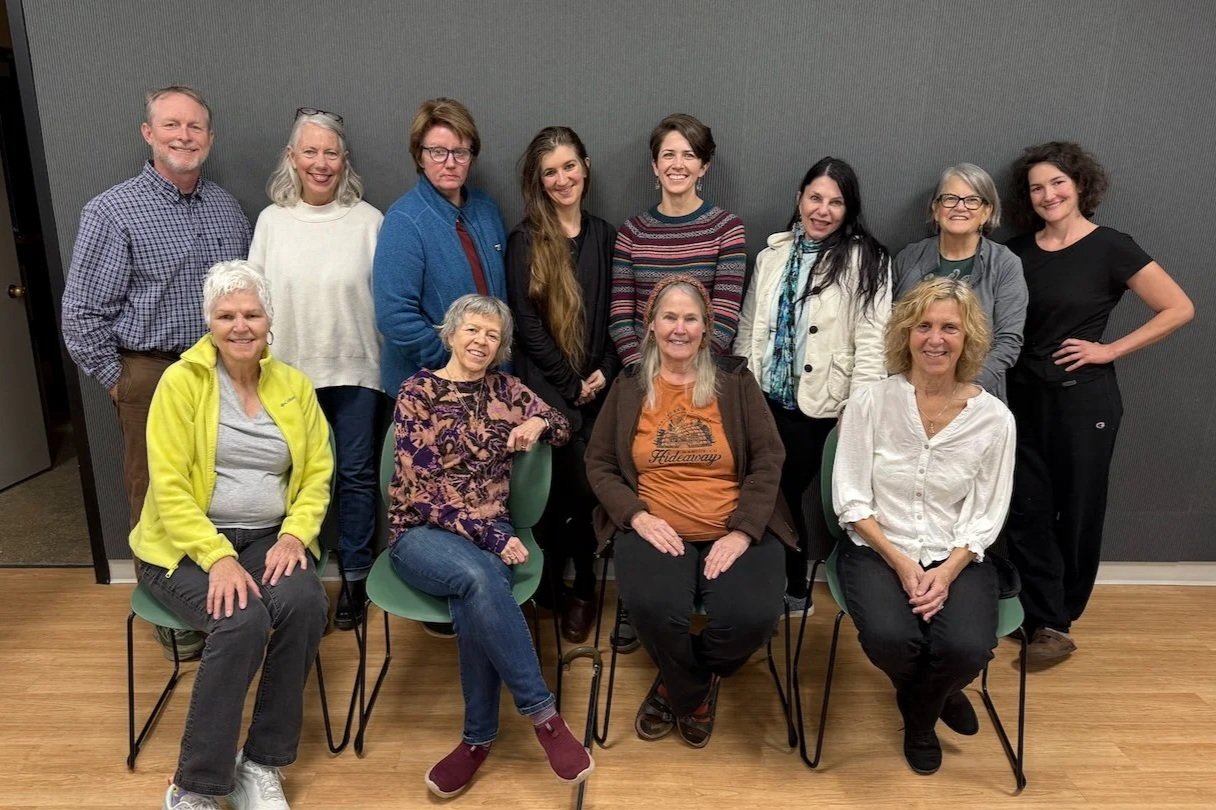
About Bee City Asheville
Carpenter bee on an azalea. Photo: Bill Pillmore
Our Mission
Galvanizing the greater Asheville area to sustain pollinators by increasing the abundance of native plants, providing nest sites, and reducing the use of pesticides.
Our leadership committee meets on the 1st Wednesday of each month from 5:30-7:00.
For details, please email us at info@beecityasheville.org.
Rudbeckia offers native bees hundreds of flowers in a single stop.
Photo: Gina Gonzalez
The First Bee City
June 26, 2012, was a very happy day in Asheville’s City Council chambers. Council members voted unanimously to adopt the first Bee City USA resolution in the nation, a resolution that outlined the annual commitments required for continued certification.
Troubled by global pollinator decline and its implications for cascading species loss, Phyllis Stiles assembled a steering committee of beekeepers to design a completely new organization to mobilize communities for pollinator conservation. Before long, their attention turned from honeybees to native bees and other pollinators who had no “keepers.”
You can still spot the original logo on signs in gardens throughout the Asheville area.
The logo was updated in 2023.
Metallic green sweat bee on Monarda flower. Photo: Andy MacPhillimy
Scaling Up Across America
What we lacked in funding we made up for in passion, enthusiastically giving presentations and spreading awareness about pollinators and the program we had started to help them. Since then, Bee City USA has spread across the country and continues to grow as more communities learn about pollinator declines and become energized to participate in conserving these essential species.
In 2015 Bee City USA expanded to college and university campuses, launching the sister initiative, Bee Campus USA. As the national network grew, Phyllis sought a home for Bee City USA and Bee Campus USA that could support them and continue to expand their reach and impact.
Pipevine swallowtails and a syphrid fly on a thistle. Photo: Stanley Schmidt
A New Home in Xerces
Happily, in 2018 Bee City USA and Bee Campus USA became initiatives of the Xerces Society for Invertebrate Conservation. Established in 1971, the Xerces Society is at the forefront of invertebrate protection, harnessing the knowledge of scientists and enthusiasm of citizens to implement conservation programs worldwide. Bee City USA and Bee Campus USA align with Xerces’ strategy of using advocacy, education, and applied research to promote invertebrate conservation. Learn more here.
Numbering in the hundreds today, Bee Cities like Asheville’s and Bee Campuses can be found in almost every state. As Margaret Mead said, “Never doubt that a small group of thoughtful, committed citizens can change the world. Indeed, it’s the only thing that ever has.” From 2012 until now, we were and continue to be powered by passionate pollenteers.
Left to Right—Back Row: Bryan Tompkins, Ruth Gonzalez, Renee Caldwell, Beatrice McQueen, Sandy Broadwill, Rebecca Robertson, Stacia Payne, Virginia Currie
Front Row: Phyllis Stiles, Florrie Funk, Betsy Savely, Katharine Weiser
Missing: Kiera Bulan, Paula Caycedo, Bill Jones, Terri Lechner, Lisa Wagner
Bee City USA - Asheville Leadership Committee
Our Bee City USA - Asheville Leadership Committee maintains Asheville’s certification as a “Bee City USA” affiliate on behalf of the City of Asheville by:
Educating residents on the importance of preserving native pollinators
Certifying native pollinator habitat on public and private land
Planting new native pollinator habitat
Hosting special events to inspire other residents to take action
The City of Asheville Sustainability Department sponsors Asheville’s Bee City USA affiliate, and Kiera Bulan, Sustainability Program Manager, serves as the City’s liaison to the committee. This initiative is a part of the City’s Asheville Edibles Program and advances the goals of the City’s Food Policy Action Plan.
Flower Longhorn Beetle (Strangalepta abbreviata) on Hydrangea arborescent. Photo: Anne Bond
Our Relationship with Asheville Greenworks
Just like Asheville’s program, each local Bee City USA affiliate commits to maintaining a standing committee to lead its pollinator conservation efforts, enhancing pollinator habitat on public and private land, spreading awareness of pollinator decline and how each of us can help, and filing a report to renew its certification with the national program each year. Sometimes that committee is based in City government, and sometimes that committee is based in a local nonprofit. Asheville’s program was originally based in the City’s Tree Commission, but over time, found an even better home with the Asheville GreenWorks organization in 2017.
By 2024, the Bee City USA – Asheville Leadership Committee had become so active that all agreed it was time to become its own organization. We are very grateful for the seven years that GreenWorks stewarded our program and thrilled that GreenWorks now serves as our fiscal agent, providing a clearinghouse for donations, sponsorships and grants to support our cause.




